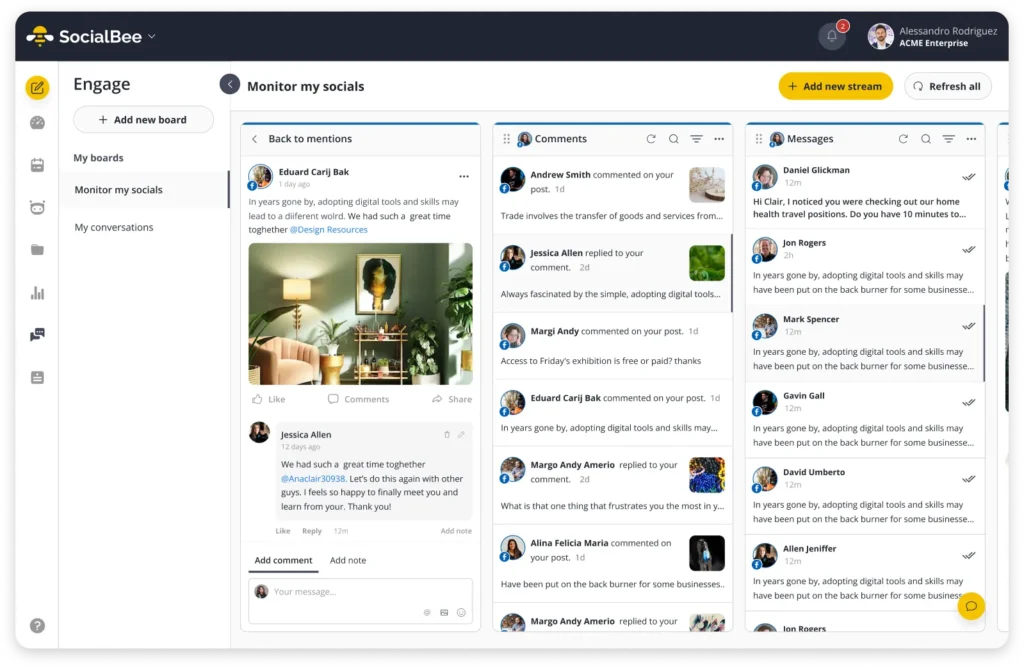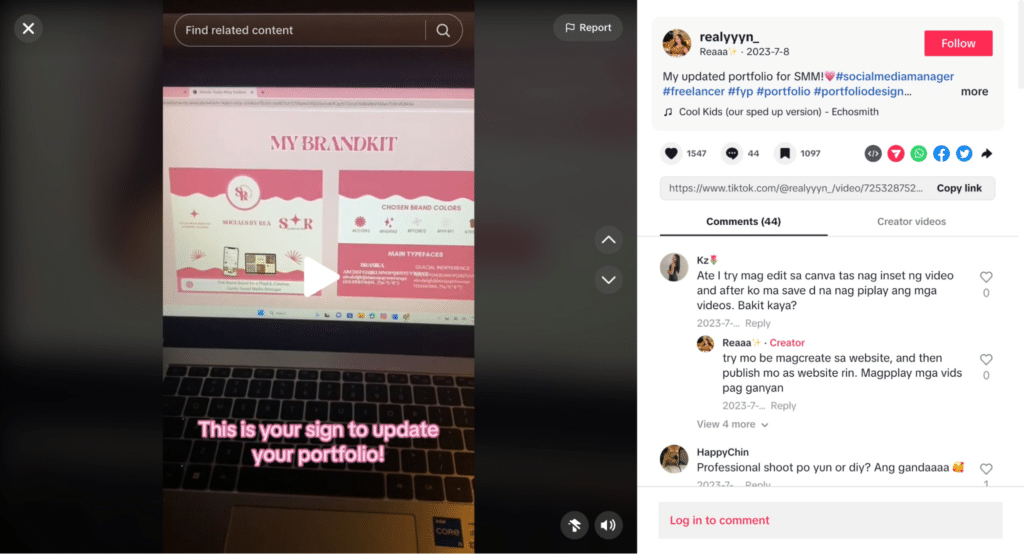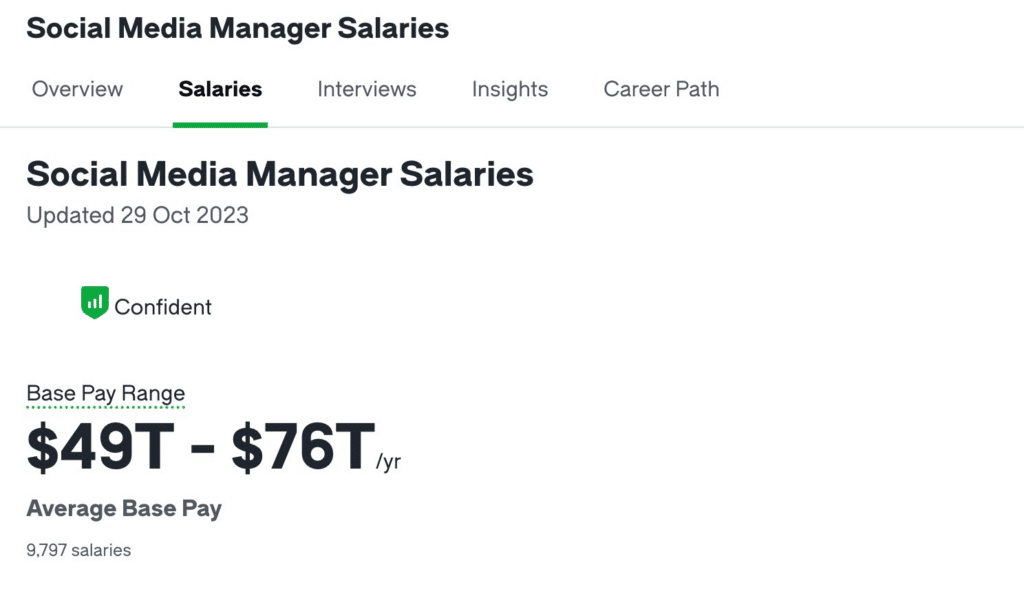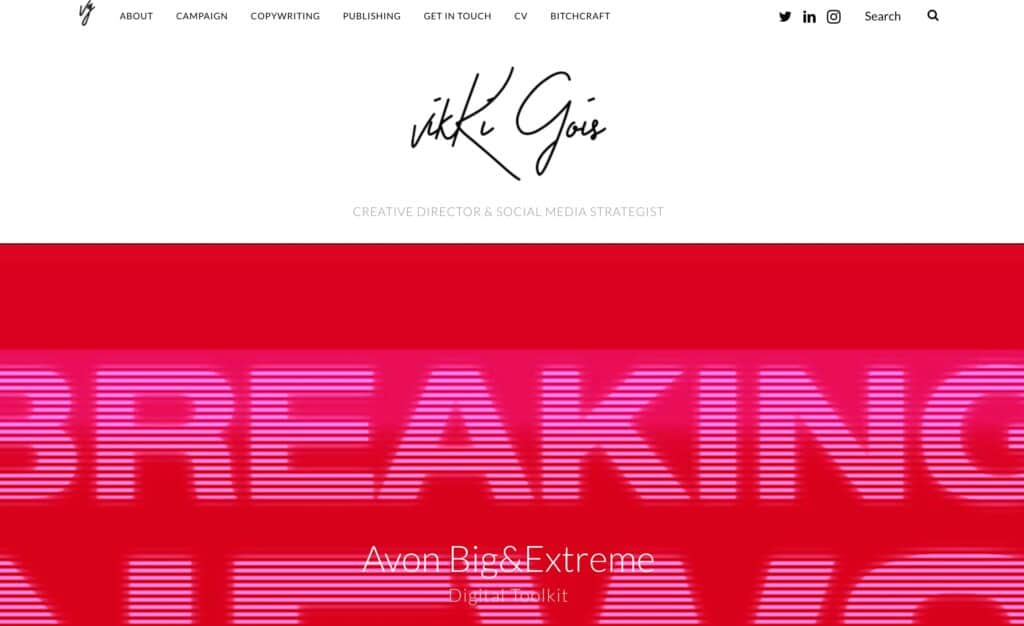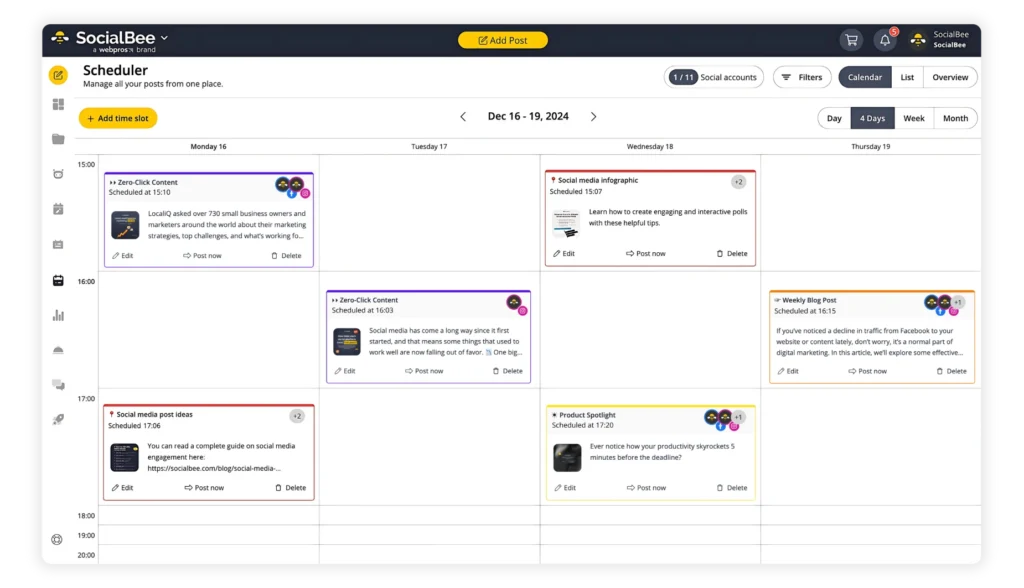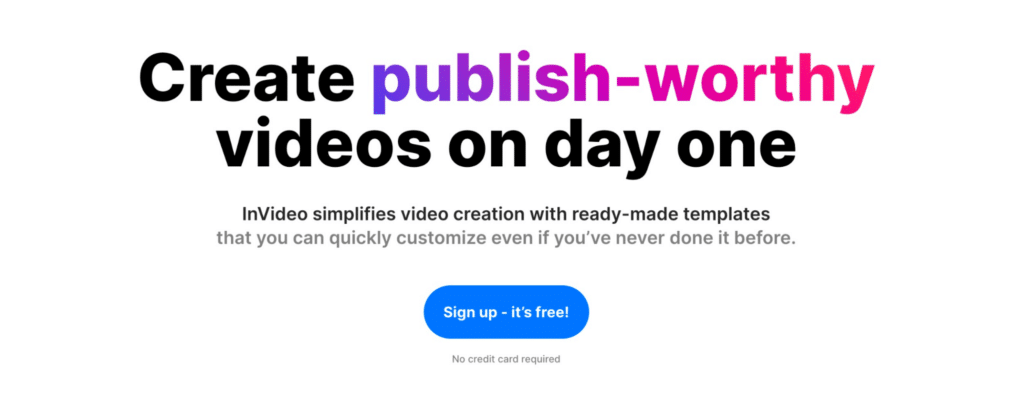
Content Writer at SocialBee
Are you curious about how to start a career in social media management?
With businesses relying on social platforms more than ever, social media managers play a key role in building online connections and boosting brand visibility.
In this guide, you’ll find practical tips, must-have skills, and tools to help you get started. Whether you’re just learning the basics or ready to dive into advanced strategies, we’ve got you covered on your journey to becoming a social media manager.
We’re SocialBee LABS SRL, part of WebPros. We use the information you provide to share relevant content and product updates, as outlined in our Privacy Policy. You can opt out anytime.
Short Summary
- To become a social media manager, gain a comprehensive understanding of each major social media platform, including Facebook, Instagram, YouTube, Twitter (X), Bluesky, TikTok, Pinterest, and Google Business Profile, to effectively enhance a brand’s presence and engage with various audiences.
- Focus on skill development in areas such as content creation, strategic planning, communication, analytics, and project management. Utilize tools like Canva for graphic design and embrace continuous learning through platforms like Coursera.
- Learn to craft a robust social media strategy by setting clear objectives, understanding your audience, choosing the right platforms, developing a content strategy, and measuring success through analytics.
- Start building your portfolio by managing personal or volunteer projects, showcasing your ability to create engaging content, strategize, and drive results. Use tools like Canva and Figma to present your work professionally.
- Utilize comprehensive social media management tools like SocialBee to streamline scheduling, content creation, and analytics. Additionally, explore resources for video editing (InVideo) and influencer marketing (Traackr) to broaden your skill set.
What Is a Social Media Manager?
A social media manager is a professional responsible for overseeing and guiding a brand’s presence on social media platforms.
They handle a variety of tasks to connect with the brand’s audience, increase its visibility, and meet marketing goals through social media.
This role involves creating and curating content, developing and implementing social media strategies, monitoring and engaging with users, analyzing performance metrics, and adjusting strategies based on analytics insights.
What Do Social Media Managers Do?
Social media managers are vital to a brand’s online presence, strategically managing a variety of tasks across multiple social platforms. Their role is multifaceted, blending creativity with strategic insight to amplify a brand’s voice and engage with its audience.
Here’s what a successful social media manager does:
- Content creation: Spearheading the creation and curation of engaging content, including compelling social media posts that resonate with the target audience. This involves generating original content as well as selecting high-quality material that aligns with the brand’s messaging and audience interests.
- Strategic planning: This involves understanding the brand’s objectives, target audience, and leveraging the unique features of each social platform.
- Project management: Applying project management skills to oversee campaigns from ideation to execution, which includes scheduling content, coordinating with team members, and ensuring projects are completed on time and within budget.
- Engagement and communication: Utilizing exceptional communication skills to interact with followers, respond to queries, and moderate discussions, all while maintaining the brand’s voice across interactions and fostering a positive community environment.
- Data analytics: Analyzing data to measure the effectiveness of social media efforts, examining metrics such as engagement rates, follower growth, and conversion rates to optimize performance.
- Developing and scheduling a content calendar: Organizing posts and content releases to maintain a consistent and strategic presence across platforms.
- Community management: Managing interactions with followers, including responding to comments, messages, and managing any online forums or discussions related to the brand.
- Running social media advertising campaigns: Designing and implementing advertising campaigns that target specific audiences, managing budgets, and analyzing the return on investment.
- Collaborating with influencers and partners: Working with influencers and other partners for cross-promotion efforts to expand reach and engagement.
By combining these tasks, social media managers play a crucial role in ensuring that a brand’s social media efforts are coherent, impactful, and closely aligned with its overarching marketing objectives.
Their ability to navigate the complexities of digital engagement makes them indispensable assets in the digital marketing landscape.
How to Become a Social Media Manager
If you’re passionate about social media, possess strong communication skills, and are keen on staying ahead of digital trends, pursuing a career as a social media manager could be your calling.
Here are the steps aspiring social media managers should take:
- Understand the different social media platforms
- Develop your necessary skills
- Learn how to build a social media strategy
- Take digital marketing classes
- Build your social media portfolio
- Manage your salary expectations
- Start looking for potential clients
1. Understand the Different Social Media Platforms
For anyone aspiring to a social media manager job, a fundamental step is gaining a deep understanding of the various social media platforms. Each platform has its unique features, audience, and best practices for content creation and engagement.
A proficient social media manager must know how to leverage the distinct characteristics of all social media accounts to enhance a brand’s social media presence effectively.
Here are some core details about all major social media platforms:
- Facebook: Facebook offers extensive opportunities for brands to connect with a diverse audience through posts, Stories, live videos, and Facebook Groups. Facebook’s advertising platform is highly sophisticated, allowing for targeted campaigns.
- Instagram: A visually driven platform, Instagram is favored for its photo and video content. It’s particularly popular among younger demographics and is an excellent channel for brands focusing on visual storytelling, influencer collaborations, and interactive features like Stories and Reels.
- YouTube: As the world’s second-largest search engine and a leading platform for video content, YouTube caters to a wide range of interests and demographics. It’s ideal for long-form content, tutorials, product reviews, and brand storytelling.
- X (formely known as Twitter): Known for its real-time information and brevity, Twitter (now X) is a platform where news, trends, and opinions thrive. It’s great for brands looking to engage in conversations, provide customer service, and share updates with a concise and direct approach.
- Bluesky: A newer entrant to the social media landscape, Bluesky is designed to foster public conversation and offers a decentralized approach to social networking. Its features and user base are evolving, making it a platform to watch for emerging trends and community building.
- TikTok: With its short-form video content, TikTok has become enormously popular, especially among Gen Z and younger millennials. It’s known for its viral trends, music, and creative content. Brands can leverage TikTok for engaging challenges, influencer partnerships, and to showcase a more playful side.
- Pinterest: Pinterest serves as a visual discovery engine, ideal for inspiration related to fashion, home decor, recipes, and DIY projects. It’s particularly effective for driving traffic to websites and is favored by a predominantly female audience interested in planning and purchasing.
- Google Business Profile: Formerly Google My Business, this social media platform allows businesses to manage their online presence across Google, including Search and Maps. It’s crucial for local SEO, enabling businesses to share important information like location, hours, and services, and to gather customer reviews.
Each platform offers unique opportunities and challenges for Social Media Managers, requiring a tailored approach to content creation, engagement, and strategic planning to effectively reach and engage with the intended audience.
2. Develop Your Necessary Skills
Becoming a successful social media manager requires a diverse set of skills that go beyond just posting content online.
Here are the key skills you need as a social media professional:
- Content creation: Master the art of crafting engaging and relevant content that resonates with your audience. This includes writing compelling copy, basic graphic design, and video editing skills. Familiarize yourself with tools like Canva, Adobe Creative Suite, and video editing software to create high-quality visuals and multimedia.
- Strategic planning: Learn how to develop and implement effective social media strategies that align with business goals. This involves understanding audience segmentation, setting measurable objectives, and planning content calendars.
- Communication skills: Excellent writing and verbal communication skills are crucial. You’ll need to articulate ideas clearly, respond to community feedback, and manage brand voice across various platforms.
- Analytics and data interpretation: Gain proficiency in using analytics tools provided by social media platforms and third-party applications. Understanding data will help you measure the success of your social media efforts, make informed decisions, and adjust strategies accordingly.
- Project management: Organizational skills and the ability to manage multiple projects simultaneously are vital. This includes time management, prioritizing tasks, and working efficiently under deadlines.
- Understanding of SEO and digital marketing: Basic knowledge of search engine optimization (SEO) and overall digital marketing strategies will enhance your social media content’s reach and effectiveness.
- Creativity and innovation: Stay ahead of social media trends and be open to experimenting with new ideas. Creativity will set your content apart and capture the attention of your audience.
- Adaptability: Social media is ever-changing, so being adaptable and willing to learn new platforms or technologies as they emerge is essential.
- Customer service: Develop skills to effectively manage customer inquiries, complaints, and feedback on social media, fostering positive interactions and brand loyalty.
By focusing on these areas, you can build a strong foundation that will prepare you for the challenges and opportunities of managing social media for brands and organizations.
Continuous learning and professional development are key, as the digital landscape evolves rapidly.
3. Learn How to Build a Social Media Strategy
For many social media managers, crafting a comprehensive social media strategy is a critical step in effectively managing a brand’s online presence. A well-thought-out strategy not only guides your content creation but also ensures that your social media efforts align with the brand’s overall marketing goals.
Here’s how to develop a robust social media strategy:
- Set clear objectives: Start by defining what you want to achieve with your social media presence. Whether it’s increasing brand awareness, driving traffic to a website, generating leads, or boosting sales, your objectives should be specific, measurable, achievable, relevant, and time-bound (SMART).
- Understand your audience: Knowing who you’re trying to reach is essential. Conduct research to identify your target audience’s demographics, interests, and social media habits. This insight will inform your content strategy, helping you to produce material that resonates with your audience.
- Analyze competitors: Look at what your competitors are doing on social media. Identify their strengths and weaknesses to uncover opportunities for your strategy. This can provide inspiration and help you differentiate your brand.
- Choose the right platforms: Not all social media platforms will be suitable for your brand. Select multiple platforms based on where your target audience spends their time and where your content will likely perform best.
- Develop a content strategy: Your content strategy is the backbone of your social media efforts. It should detail the types of content you will create (e.g., posts, videos, infographics), themes or topics you will cover, and the balance between promotional and value-added content. Ensure your content aligns with your brand voice and objectives.
- Create a content calendar: Organize your content strategy into a content calendar. This should outline what and when you’ll post on each platform. A calendar helps ensure consistent posting and covers key dates and events relevant to your audience.
- Engagement plan: Decide how you will engage with your audience. Plan for responding to comments, messages, and reviews. Engagement is crucial for building a loyal community around your brand.
- Measure and adjust: Utilize analytics tools to track the performance of your social media activities. Review metrics such as engagement rates, follower growth, and conversion rates to understand what’s working and what isn’t. Use these insights to refine your strategy over time.
How social media managers use SocialBee to build and manage their strategy Social media managers leverage SocialBee to create, publish, and monitor their content performance. Standout features include AI-powered features, as well as content batching and recycling capabilities that make social media planning a hassle-free task. With SocialBee, users gain access to an AI social media manager that crafts customized strategies based on their input. It recommends the best platforms for their clients, identifies key content pillars, determines optimal posting times, and even generates ready-to-use social media posts. Answer a set of eight questions and let Copilot create your social media strategy. Start your 14-day free trial now! Additionally, SocialBee provides workspace creation for different clients, supports team collaboration, and offers social inbox management capabilities, streamlining social media management tasks from one dashboard. |
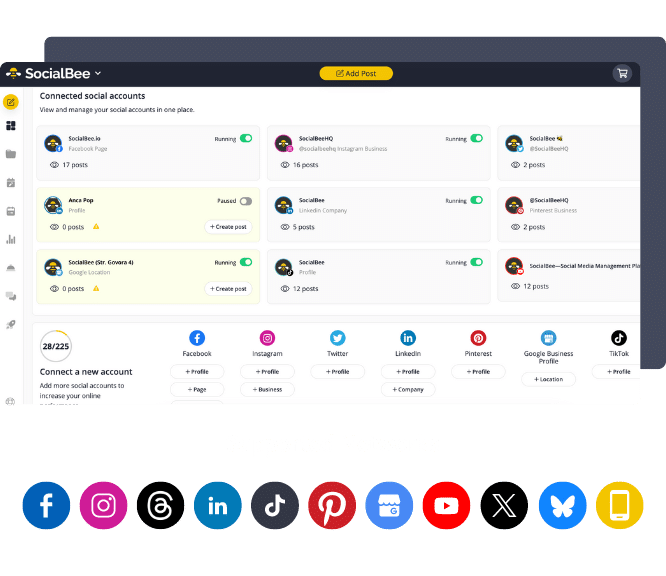
Streamline Your Social Media Tasks with SocialBee!
4. Take Digital Marketing Courses
Taking digital marketing courses is a great way to build your knowledge and skills as a social media manager.
Here are some examples of reputable courses and platforms offering valuable learning experiences in digital marketing and social media:
- Google Digital Garage: Offers a wide range of free courses, including the “Fundamentals of Digital Marketing,” which covers SEO, social media, PPC, and more, complete with a certification from Google.
- Facebook Blueprint: Provides free, self-paced courses specifically designed for marketing on Facebook and Instagram. These include topics on creating effective ads, analyzing insights, and building your online presence.
- Coursera: Offers courses and specializations from universities and colleges on digital marketing, including social media marketing. Examples include the “Digital Marketing Specialization” from the University of Illinois and “Social Media Marketing Specialization” by Northwestern University.
- LinkedIn Learning: Features a vast library of courses on social media and digital marketing, including “Becoming a Social Media Marketer” and “Online Marketing Foundations.” LinkedIn Learning courses are led by industry experts and often include practical exercises and quizzes.
- SocialBee’s University on Udemy: This course is designed to elevate your marketing game by covering the essentials of social media management, including fundamentals, copywriting, branding, and strategic planning.
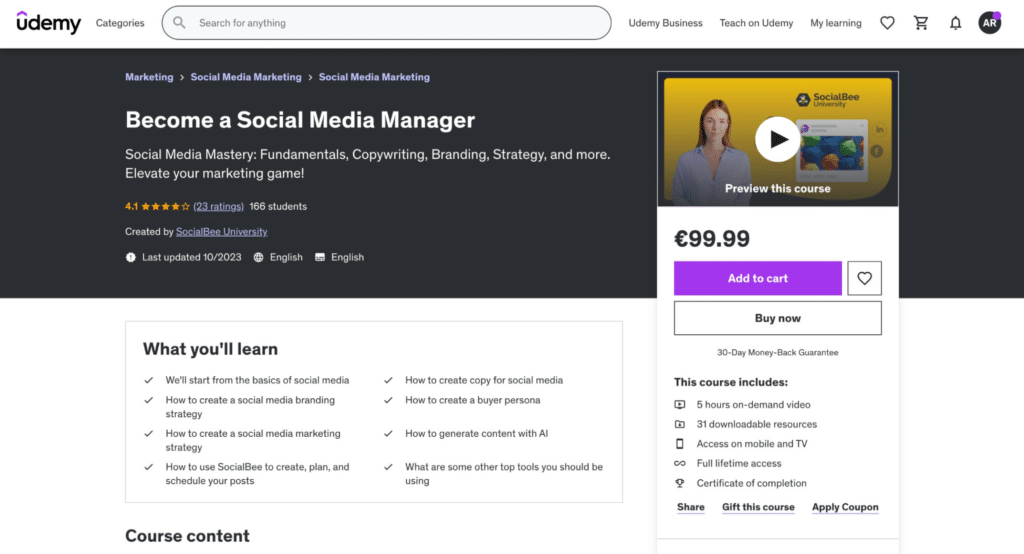
Start our “Become a Social Media Manager” course!
This course provides a comprehensive guide for those looking to master social media to enhance their marketing efforts.
5. Build Your Social Media Portfolio
Building a social media portfolio as a beginner involves showcasing your growing skills and understanding of the field.
Here are streamlined tips to help you develop a compelling portfolio:
- Initiate personal projects: Start by managing social media accounts on topics you’re passionate about. Document your strategies, content creation, and the growth of these accounts to demonstrate your ability to engage with an audience.
- Utilize design tools: Familiarize yourself with tools like Canva and Figma to create engaging graphics and presentations, showcasing your design skills and creativity.
- Get some experience: Milou Pietersz, social media strategist with over 5 years of experience, suggests starting your journey by volunteering through platforms like VolunteerMatch to gain experience without the stress of high-stakes client work. This approach allows you to build your portfolio and potentially transition volunteer positions into paid opportunities.
- Engage in learning: Take advantage of online courses from platforms like Coursera or LinkedIn Learning. Include any certifications you earn in your portfolio to validate your knowledge.
- Choose your niche: Latasha James, a freelance social media marketer with over 10 years of hands-on experience, advocates for specialization, suggesting that finding a niche where one’s passions and professional experience meet can lead to more fulfilling and successful career outcomes.
- Document and analyze: For each project, include your goals, the strategies employed, and the results achieved, especially metrics that show growth or engagement improvements.
- Keep your portfolio updated: Regularly refresh your portfolio with new projects and learnings. This demonstrates your commitment to growth and staying current with social media trends.
- Choose appropriate platforms: Present your portfolio on a platform that suits your style and makes your work easily accessible, such as a personal website and a professional network like LinkedIn.
The TikTok bellow exemplifies an ideal presentation, starting with a captivating introduction and visual, followed by accessible contact options across social media platforms.
The portfolio showcases detailed use cases highlighting project goals, outcomes, and engaging visuals, alongside a concise list of key actions.
6. Manage Your Salary Expectations
As you navigate a career as a social media manager, understanding and managing your salary expectations is crucial, whether you’re freelancing or in a traditional employment setting.
Salaries can vary significantly based on factors like experience, geographic location, the industry you’re working in, and the size of the company or the clients you’re dealing with.
Here’s how you can manage your salary expectations as a social media manager:
- Research industry standards: Look into the average salaries for social media managers in your area and within your industry. Websites such as Glassdoor, Payscale, and LinkedIn Salary offer valuable insights into what others in your role are earning, helping you gauge what’s competitive. For example, according to Glassdoor, the average salary for Social Media Manager is $65,304 per year in the United States.
- Consider your experience: Your level of experience will greatly influence your earning potential. Entry-level social media managers might start with lower earnings, but as you build your portfolio, specialize, and prove the effectiveness of your strategies, your value and, consequently, your salary or rates should increase.
- Evaluate the full compensation package: Especially for employees, the total compensation package includes more than just the salary. Health benefits, retirement plans, bonuses, professional development allowances, and work-life balance perks can add substantial value. Freelancers should consider their need for higher rates to cover self-employment taxes and the absence of traditional benefits.
- Negotiate your salary or rates: Armed with research and evidence of your successes, don’t hesitate to negotiate your compensation. Highlight your achievements, the outcomes of your social media campaigns, and any unique qualifications you bring to the table.
- Stay informed and flexible: The digital marketing landscape is ever-changing, which means roles and compensation trends can shift. Keeping abreast of industry trends and continuously upskilling can help you remain competitive and justify higher salaries or rates.
- Network with peers: Engaging with other professionals, whether through online forums, social media groups, or industry meetups, can provide insights into compensation trends and negotiation tactics. This is valuable for both freelancers and employees looking to navigate their salary expectations effectively.
Balancing research, negotiation skills, and a clear understanding of your value in the market is key to managing your salary expectations as a social media manager. Whether you’re freelancing or working as an employee, these strategies can help ensure you’re compensated fairly for your expertise and contribution to the industry.
7. Start Looking for Potential Clients
Embarking on a career as a social media manager, whether as a freelancer or within an agency, necessitates finding clients or projects to work on. This step is critical to building your portfolio and gaining the experience needed to advance in your career.
Here are strategies to help you start looking for potential social media jobs or clients:
- Leverage your network: Inform your personal and professional networks about your services. Former colleagues can provide referrals or introduce you to businesses in need of social media management.
- Utilize social media: Emphasizing the power of personal branding, Milou Pietersz, a social media consultant with over 5 years of experience, advises starting social media managers to practice what they preach by maintaining an active and consistent presence on their own social platforms. This not only showcases your skills but also attracts clients through inbound leads. Join relevant groups and forums on platforms like LinkedIn, Facebook, and Twitter, where businesses might seek social media management services.
- Create lead magnets: Hosting free workshops or webinars on social media strategy can attract potential clients by showcasing your expertise. Additionally, offering various freebies such as strategy templates helps build an email list for a newsletter, maintaining engagement and interest in your services.
- Freelance marketplaces: Platforms like Upwork, Freelancer, and Fiverr allow you to create a profile and bid on projects related to social media management. These sites can be competitive but they offer a good starting point for building your client base.
- Reach out directly: Identify businesses that could benefit from improved social media presence and reach out with a tailored proposal. Highlight how your services can help them achieve their marketing goals.
- Collaborate with complementary service providers: Partnering with web designers, digital marketing agencies, or content creators can open up opportunities for referrals.
- Content marketing: Create valuable content that your target clients might search for online. This could be blog posts, case studies, or guides on effective social media strategies. You can also look for blogs with a similar target audience and pitch a guest post.
- Attend industry conferences and workshops: Not only are these great for learning and staying up to date with social media trends, but they’re also excellent for networking with potential clients and peers in the industry.
- Create a professional website: A website serves as a digital portfolio where you can showcase your work, share testimonials, and detail your services. Include a blog to share industry insights and demonstrate your expertise in social media marketing.
Here’s such an example of portfolio-website:
Vikki Gois‘ captivating portfolio on her social media website showcases her extensive skills and services through the display of various projects and use cases.
5 Tools to Use as a Social Media Manager
These are five tools that social media marketing managers should use:
- SocialBee for comprehensive social media management
- Canva for creative graphic design
- Coursera for online courses and free resources
- InVideo for video creation and editing
- Traackr for influencer marketing
1. SocialBee for Comprehensive Social Media Management
Social media managers often face challenges like juggling multiple accounts and maintaining a consistent content schedule.
AI-powered social media tools like SocialBee streamline these tasks by allowing for advanced post scheduling across different platforms, minus the manual time-consuming work.
Additionally, SocialBee aids in content curation and performance analysis, simplifying the creation of engaging content and enabling data-driven strategy adjustments.
Schedule and publish your content across your social media platforms with ease from SocialBee.
Start your 14-day free trial now!
Here’s a detailed look at the features that make SocialBee a valuable asset:
- Supported platforms: SocialBee supports a wide range of social media networks including Facebook, Instagram, Threads, X (Twitter), LinkedIn, Pinterest, Bluesky, Google Business Profile, TikTok, and YouTube. This wide coverage allows managers to maintain a cohesive brand presence across the most popular and emerging platforms.
- Design integrations: With direct integrations for Canva, Unsplash, and GIPHY, SocialBee enables users to design captivating posts within the platform.
- AI Post Generator: The AI Post Generator simplifies content creation by generating captions and images for posts.
- Social Media Copilot: SocialBee’s Social Media Copilot helps generate a comprehensive social media strategy, guiding users through the process of planning and executing effective campaigns.
- Content categorization: Users can structure their content into categories, ensuring a balanced mix of content types and themes.
- Customization for each network: SocialBee allows for the customization of posts for each social media network, ensuring that content is optimized for the format and audience of each platform.
- Automatic hashtag generation: The tool can automatically generate hashtags based on the images or captions of posts, enhancing discoverability and engagement.
- Recycling and expiration of posts: Evergreen content can be recycled to maximize its value, while time-sensitive content can be set to expire, keeping the social media feed fresh and relevant.
- Posting schedule: A calendar-like posting schedule enables users to plan and automate the publishing of content across all profiles and reccomends best posting time based on content performance, ensuring consistent engagement with the audience.
- Overview of upcoming posts: SocialBee provides a quick overview of the next 100 social media posts, offering insights into the content pipeline and schedule.
- Workspaces and collaboration: The platform supports multiple workspaces and features for team collaboration, making it suitable for social media managers with multiple clients.
- Link tracking and analytics: Integration with over 5+ URL shorteners allows for the tracking of link performance, while built-in analytics offer insights into account growth and post performance. You can also generate PDF reports of your results and share them with your clients.
- Engagement features: SocialBee also includes tools to engage with followers’ comments or mentions directly from the platform, enhancing the relationship between the brand and its audience.
2. Canva for Creative Graphic Design
Canva revolutionizes graphic design for social media managers with its user-friendly interface and comprehensive suite of design tools.
It offers a vast array of templates, images, fonts, and design elements that make creating professional-looking graphics accessible to everyone, regardless of their graphic design expertise.
With Canva, users can quickly produce everything from social media posts and banners to infographics and advertisements. Its drag-and-drop functionality simplifies the design process, while collaboration features enable teams to work together seamlessly.
Canva’s versatility and ease of use make it an indispensable tool for enhancing the visual appeal of social media content.
3. Coursera for Online Courses and Free Resources
Coursera stands out as a premier platform for social media managers seeking to expand their knowledge and skills. It offers access to a wide range of online courses and free resources from top universities and industry leaders worldwide.
Coursera covers various topics relevant to social media management, including digital marketing, content strategy, analytics, and more. These courses range from beginner to advanced levels, providing valuable learning opportunities for professionals at any stage of their career.
With flexible schedules and the option for certification, Coursera enables social media managers to stay at the forefront of industry trends and best practices.
4. InVideo for Video Creation and Editing
InVideo addresses the growing demand for video content on social media platforms, offering a powerful yet easy-to-use video creation and editing tool.
It provides a wide selection of templates and customizable options to produce high-quality videos tailored for social media, including promotional videos, testimonials, and educational content.
InVideo’s intuitive interface allows users to edit videos with ease, incorporating text, music, and animations to create engaging content that resonates with audiences.
Whether for Instagram stories, YouTube videos, or Facebook ads, InVideo helps social media managers leverage the power of video content to captivate and engage.
5. Traackr for Influencer Marketing
Traackr is a specialized platform designed to streamline influencer marketing efforts, making it easier for social media managers to discover, manage, and analyze influencer relationships.
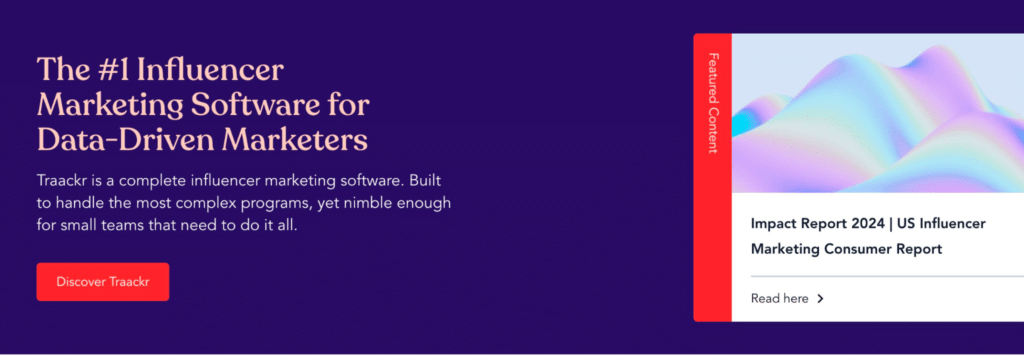
With its comprehensive database and analytics capabilities, Traackr enables social media managers to make data-driven decisions and optimize their influencer marketing strategies for maximum effectiveness.
Want to discover more tools that make social media easier? If you’re looking for underrated tools to help with different parts of your workflow, like turning blog posts into videos, creating visuals in seconds, finding influencers to work with, and more, check out our YouTube video.
By the end, you’ll know exactly which tools can save you time, keep you organized, and help you focus on the work that really matters.
Frequently Asked Questions
No, a marketing degree is not a mandatory requirement to become a social media manager. The role emphasizes practical skills, such as content creation, strategic planning, analytics, and an in-depth understanding of social media platforms, over formal education.
Many professionals in this field have backgrounds in various disciplines and have gained expertise through self-taught skills, online courses, and hands-on experience.
For a social media manager, creativity is key, allowing them to produce innovative and eye-catching posts that stand out in the crowded social media space. However, creativity alone is not enough; strategic planning and a deep understanding of the brand’s goals are essential.
This includes identifying target audiences, scheduling content for optimal engagement, and setting measurable objectives to track progress and adjust tactics as needed.
Yes, it’s possible to become a social media manager without prior professional experience by leveraging a proactive and strategic approach to learning and networking. Start by immersing yourself in online courses and resources to master the essentials of social media marketing, analytics, and content creation.
Build and manage your own social media profiles to demonstrate your skills and engage with communities, creating a portfolio that showcases your ability to generate engaging content and grow an audience.
Ready to Become a Social Media Specialist?
Embarking on a career as a social media manager opens doors to endless opportunities in the digital landscape.
By mastering the essential skills, leveraging expert tips, and utilizing the right tools, you can thrive in this dynamic field. Whether you’re just starting or looking to elevate your expertise, the journey to becoming a social media specialist is within reach.
Ready to take the next step? Start your 14-day SocialBee trial!


